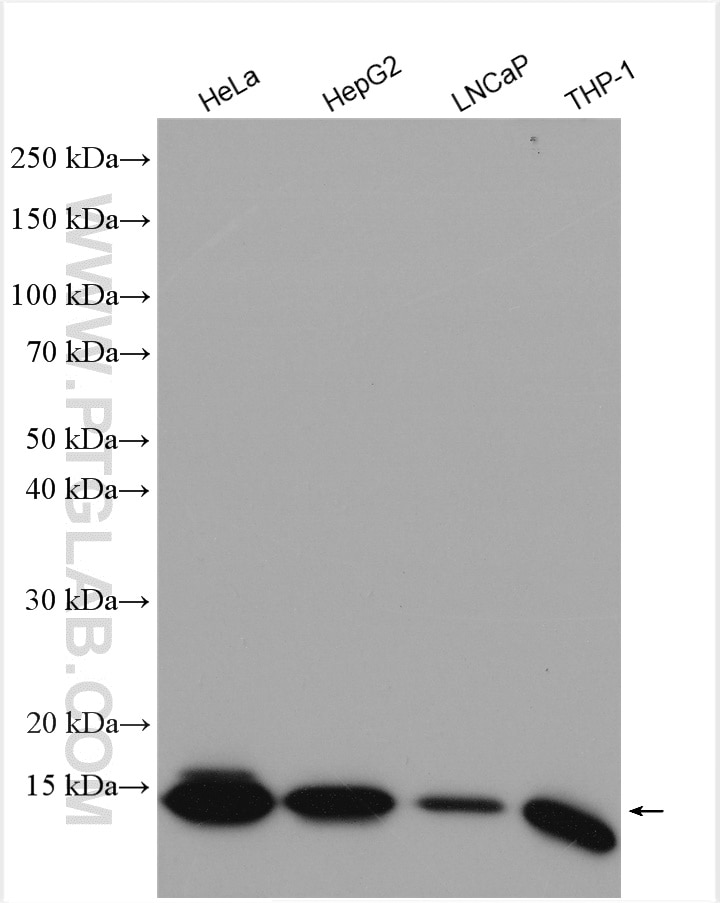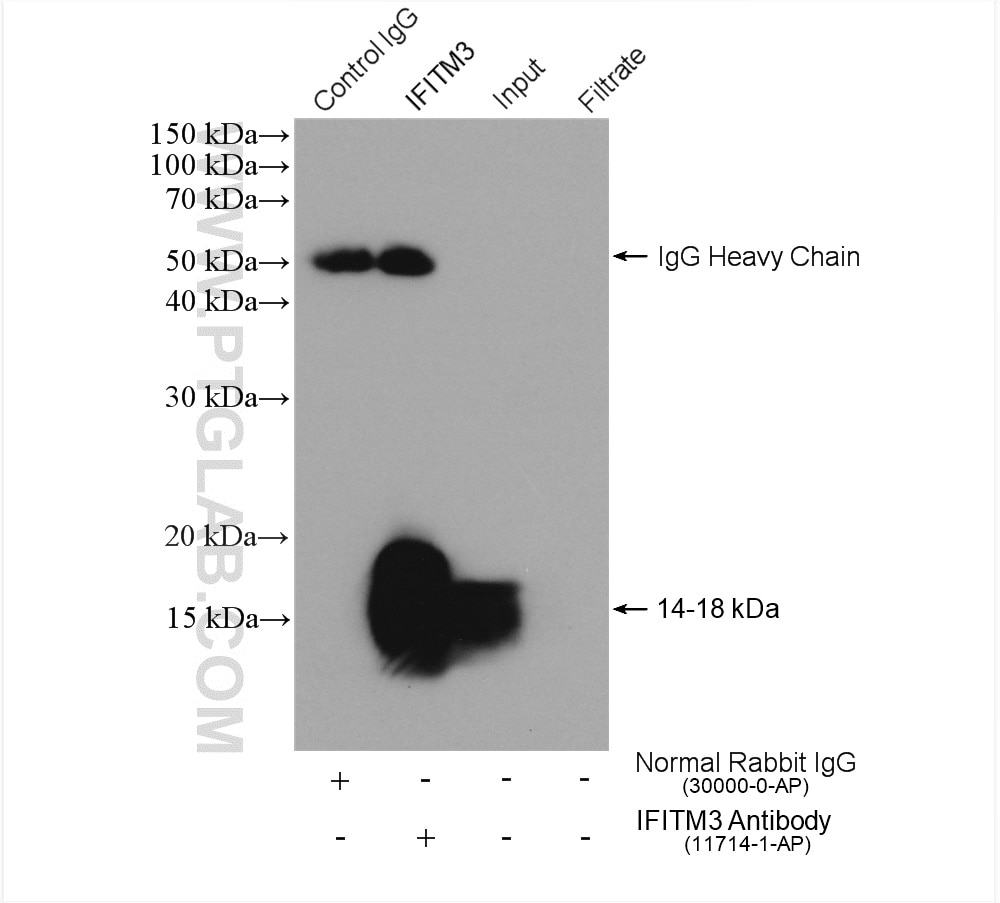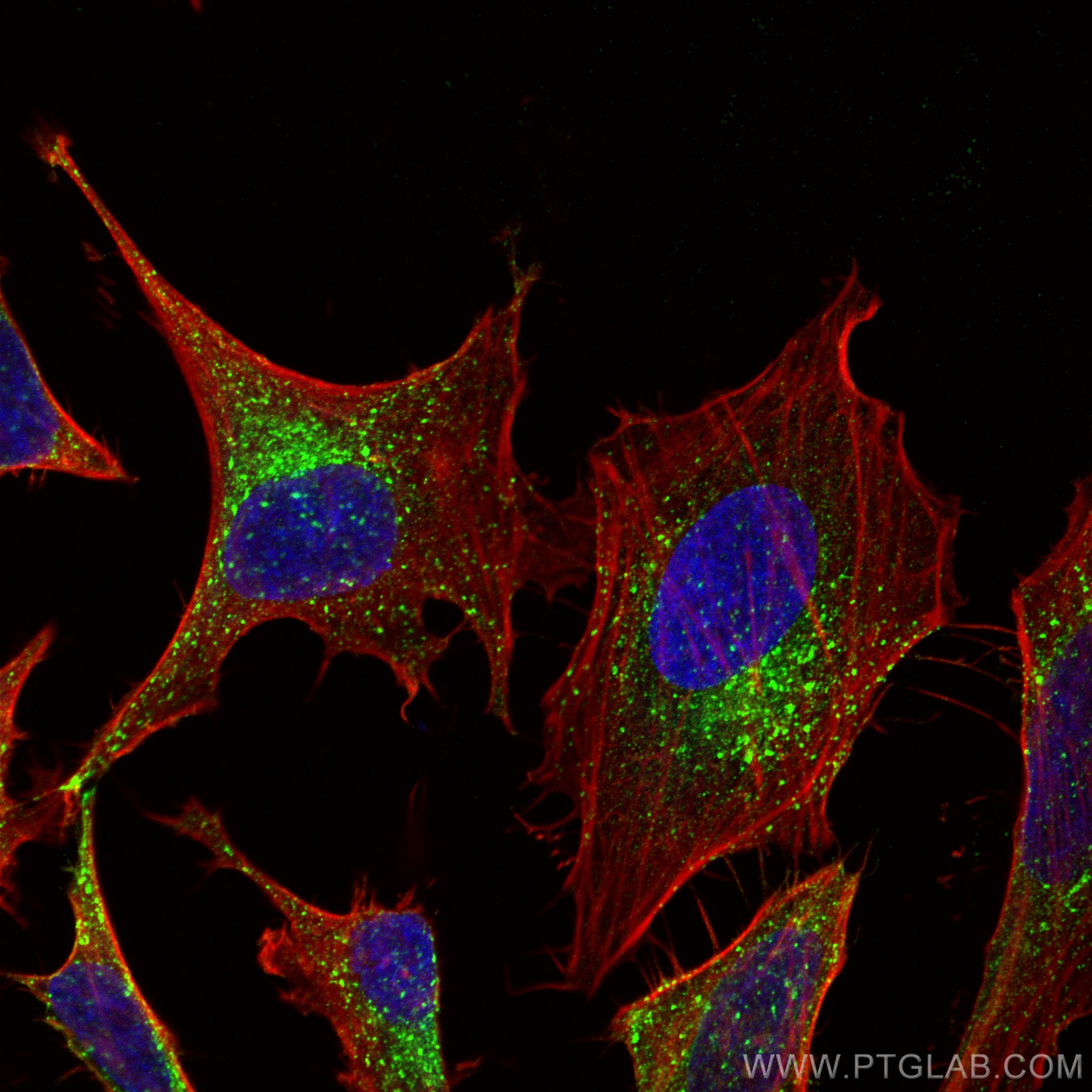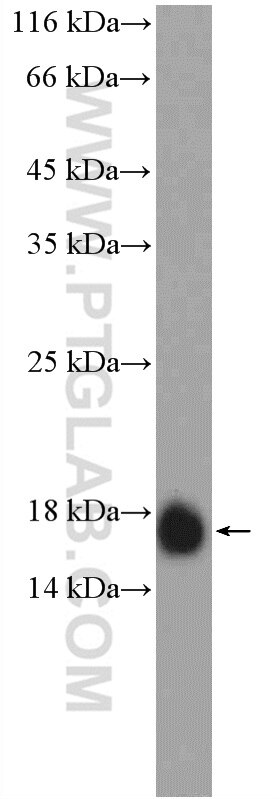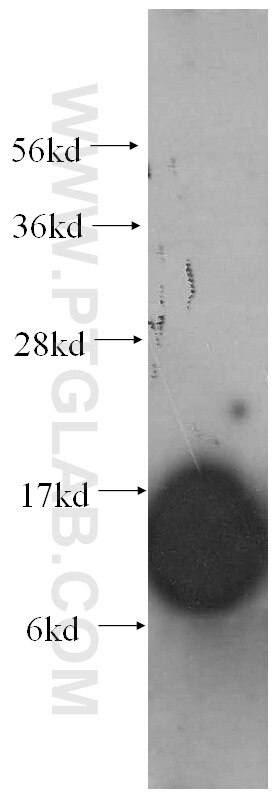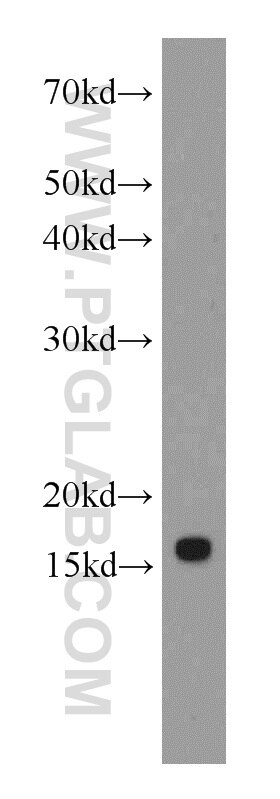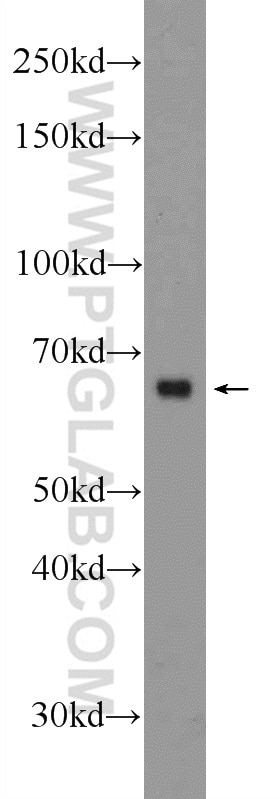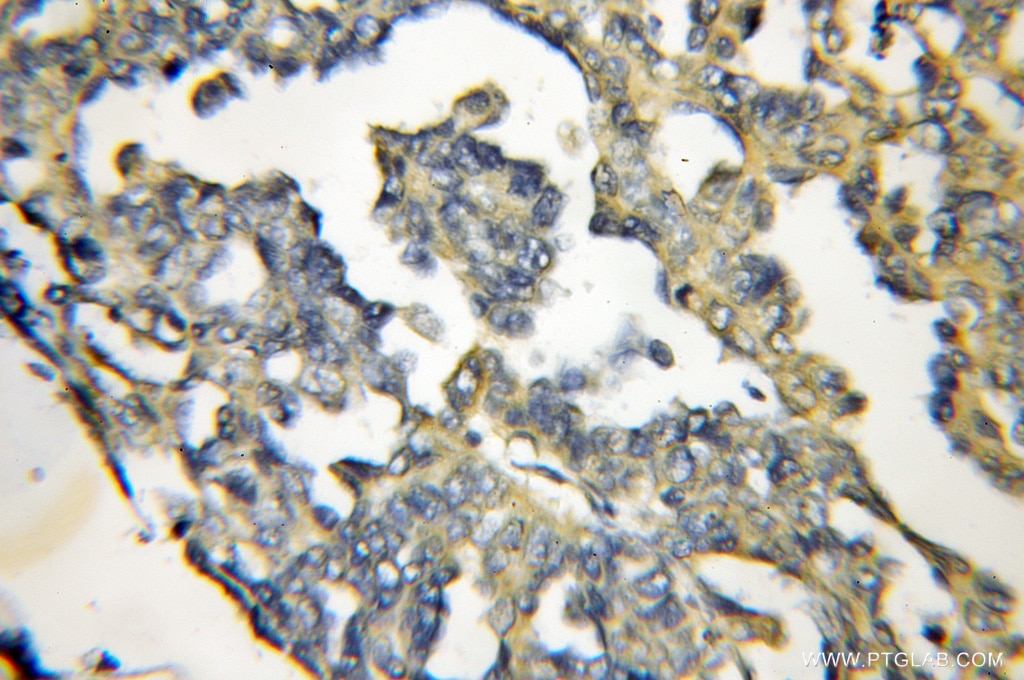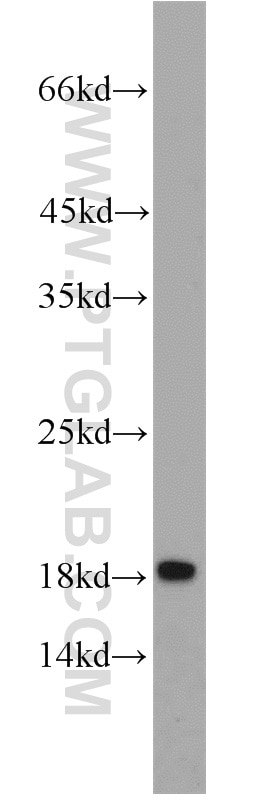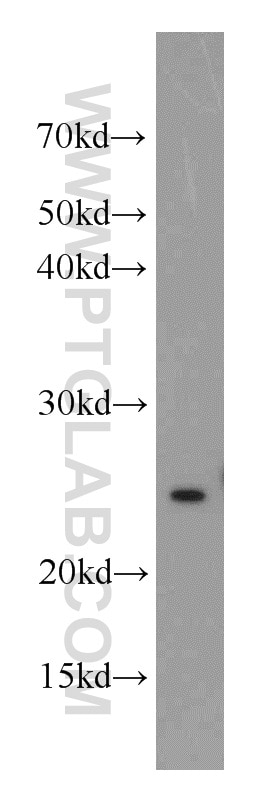- Phare
- Validé par KD/KO
Anticorps Polyclonal de lapin anti-IFITM3
IFITM3 Polyclonal Antibody for WB, IP, IF, ELISA
Hôte / Isotype
Lapin / IgG
Réactivité testée
Humain et plus (7)
Applications
WB, IHC, IF/ICC, IP, CoIP, ELISA
Conjugaison
Non conjugué
131
N° de cat : 11714-1-AP
Synonymes
Galerie de données de validation
Applications testées
| Résultats positifs en WB | cellules HeLa, cellules HepG2, cellules LNCaP, cellules THP-1 |
| Résultats positifs en IP | cellules HepG2, |
| Résultats positifs en IF/ICC | cellules HeLa, |
Dilution recommandée
| Application | Dilution |
|---|---|
| Western Blot (WB) | WB : 1:5000-1:50000 |
| Immunoprécipitation (IP) | IP : 0.5-4.0 ug for 1.0-3.0 mg of total protein lysate |
| Immunofluorescence (IF)/ICC | IF/ICC : 1:400-1:1600 |
| It is recommended that this reagent should be titrated in each testing system to obtain optimal results. | |
| Sample-dependent, check data in validation data gallery | |
Informations sur le produit
11714-1-AP cible IFITM3 dans les applications de WB, IHC, IF/ICC, IP, CoIP, ELISA et montre une réactivité avec des échantillons Humain
| Réactivité | Humain |
| Réactivité citée | rat, canin, Chèvre, Humain, porc, poulet, souris, Singe vert d'Afrique |
| Hôte / Isotype | Lapin / IgG |
| Clonalité | Polyclonal |
| Type | Anticorps |
| Immunogène | IFITM3 Protéine recombinante Ag2285 |
| Nom complet | interferon induced transmembrane protein 3 (1-8U) |
| Masse moléculaire calculée | 133 aa, 15 kDa |
| Poids moléculaire observé | 14 kDa |
| Numéro d’acquisition GenBank | BC006794 |
| Symbole du gène | IFITM3 |
| Identification du gène (NCBI) | 10410 |
| Conjugaison | Non conjugué |
| Forme | Liquide |
| Méthode de purification | Purification par affinité contre l'antigène |
| Tampon de stockage | PBS avec azoture de sodium à 0,02 % et glycérol à 50 % pH 7,3 |
| Conditions de stockage | Stocker à -20°C. Stable pendant un an après l'expédition. L'aliquotage n'est pas nécessaire pour le stockage à -20oC Les 20ul contiennent 0,1% de BSA. |
Informations générales
IFITM3, also named as interferon-inducible protein 1-8U, belongs to the CD225 family. It is IFN-induced antiviral protein that mediates cellular innate immunity to at least three major human pathogens, namely influenza A H1N1 virus, West Nile virus (WNV), and dengue virus, by inhibiting the early steps of replication. IFITM3 is identified as interferon-induced cellular proteins that restrict infections by retroviruses and filoviruses and of influenza virus and flaviviruses, respectively. IFITM3, the most potent antiviral IFITM, was found to inhibit an uncharacterized early infectious event after VSV endocytosis, but before primary transcription of its viral genome. IFITM proteins are viral restriction factors that can inhibit infection mediated by the influenza A virus (IAV) hemagglutinin (HA) protein. They differentially restrict the entry of a broad range of enveloped viruses, and modulate cellular tropism independently of viral receptor expression. Catalog#11714-1-AP is a rabbit polyclonal antibody raised against the full-length of human IFITM3.
Protocole
| Product Specific Protocols | |
|---|---|
| WB protocol for IFITM3 antibody 11714-1-AP | Download protocol |
| IF protocol for IFITM3 antibody 11714-1-AP | Download protocol |
| IP protocol for IFITM3 antibody 11714-1-AP | Download protocol |
| Standard Protocols | |
|---|---|
| Click here to view our Standard Protocols |
Publications
| Species | Application | Title |
|---|---|---|
Science A human apolipoprotein L with detergent-like activity kills intracellular pathogens. | ||
Cell A family of conserved bacterial virulence factors dampens interferon responses by blocking calcium signaling. | ||
Science T cell memory. Skin-resident memory CD8⁺ T cells trigger a state of tissue-wide pathogen alert. | ||
Cell Stem Cell Human microglia states are conserved across experimental models and regulate neural stem cell responses in chimeric organoids. | ||
Avis
The reviews below have been submitted by verified Proteintech customers who received an incentive forproviding their feedback.
FH Thomas (Verified Customer) (06-29-2022) | Works fine in WB and IF
|
FH Xiuqing (Verified Customer) (03-21-2022) | worked very well for western blot
|
